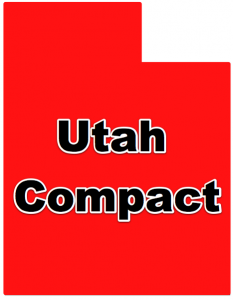Is The Utah Compact The U.S. Immigration Solution?
Utah’s immigration reform, signed into law on March 15 of last year by Governor Gary Herbert, is composed of four separate bills. They range from the creation of a guest worker program to a sponsorship program where immigrants may be eligible to work, reside, and study in the state.
Nonetheless, Utah’s immigration reform package, framed after the “Utah Compact” — a framework based on principles such as federal solutions, family, and economy — is currently stalled as one of the bills, HB 497, is blocked by a federal ruling. In the ruling issued May 10 of last year, U.S. District Judge Clark Waddoups cited that the law “would cause irreparable harm,” and therefore blocked the law until a further hearing.
HB 497 included provisions similar to other states’ immigration bills that have also been blocked. It would have the ability for officers to verify the immigration status of those arrested, and gives the discretion to police officers to check the status of anyone in lesser offenses. The law would also allow the warrantless arrest of anyone found to be illegally present in the state; it would also make it a crime to harbor or transport unauthorized persons.
The Utah immigration case is interesting because not only has the state enacted harsh immigration enforcement laws that violate federal authority over immigration, but also has gone a step further and implemented its own state version of a guest worker program and a sponsorship program. Both of these bills, HB 116 and HB 469 respectively, seek a federal waiver for implementation to begin July 2013.
Some believe the Utah immigration reform to be an ideal example of how immigration should be handled at the federal level. Others argue the Utah immigration laws are a form of amnesty and are against its enactment. However, the issue here is the fact that the state has clearly violated federal authority in implementing its own immigration policies. Indeed, the U.S. Department of Justice has stated that these laws also violate federal law, but as of now has not taken any action towards the laws since they do not take effect until 2013.
Utah’s immigration reform package hints at the problem currently in debate over immigration. As with other immigration laws that have followed Arizona’s, Utah has also taken its viewpoint into action; which is the need for comprehensive immigration reform. However, as federal officials have stated, Utah’s immigration reform violates federal authority. More so, the law also has the consequences of possibly promoting racial profiling in order to achieve its goal.
As with other immigration laws facing legal action, Utah’s immigration reform package as a whole will not see resolve until the Supreme Court decides Arizona’s immigration case later this year.
Christopher Rangel is a student at the University of Texas at Austin.


